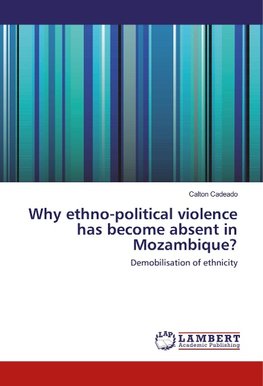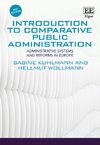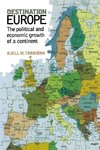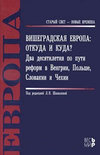
-
 Anglický jazyk
Anglický jazyk
Why ethno-political violence has become absent in Mozambique?
Autor: Calton Cadeado
Mozambique has, in her historical records, instances of mobilization and instrumentalization of ethnicity that resorted into ethno-political violence. This bloody reality was predominant during the struggle for independence from Portuguese colonial regime... Viac o knihe
Na objednávku
33.30 €
bežná cena: 37.00 €
O knihe
Mozambique has, in her historical records, instances of mobilization and instrumentalization of ethnicity that resorted into ethno-political violence. This bloody reality was predominant during the struggle for independence from Portuguese colonial regime and was clearly perceived as a threat to the national liberation. As a result, the nationalist movement led by FRELIMO, which then became the ruling government, in the post-independence era, implemented policies at political and cultural domains to "demobilize ethnicity" in order to prevent the continuation of the ethno-political bloodshed. It became an imperative, first, to achieve the independence and then to preserve the survival of the state, which soon after independence was threatened by a protracted war. The political and cultural measures contributed significantly for vanishing of ethno-political violence, but, so far, this fact has been academically overlooked. Thus, differently from studies which explain why ethno-political violence occurred, this is the first qualitative research that focuses on the reasons for the absence of ethno-political violence in Mozambique.
- Vydavateľstvo: LAP LAMBERT Academic Publishing
- Rok vydania: 2017
- Formát: Paperback
- Rozmer: 220 x 150 mm
- Jazyk: Anglický jazyk
- ISBN: 9786202056601







 Nemecký jazyk
Nemecký jazyk 
 Ruský jazyk
Ruský jazyk 



